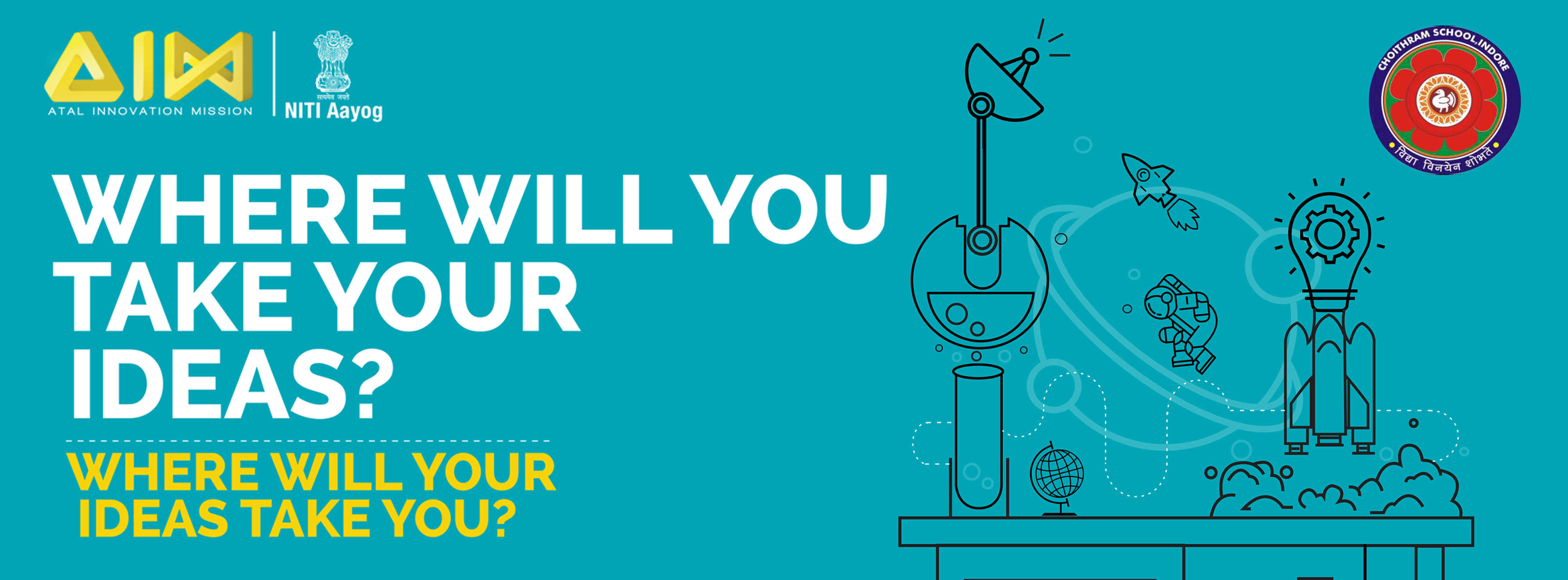
The Atal Innovation Mission (AIM) is a flagship initiative set up by the NITI Aayog to promote innovation and entrepreneurship across the length and breadth of the country, based on a detailed study and deliberations on innovation and entrepreneurial needs of India in the years ahead.
AIM is also envisaged as an umbrella innovation organization that would play an instrumental role in alignment of innovation policies between central, state and sectoral innovation schemes incentivizing the establishment and promotion of an ecosystem of innovation and entrepreneurship at various levels - higher secondary schools, science, engineering and higher academic institutions, and SME/MSME industry, corporate and NGO levels. Long term goals of AIM include establishment and promotion of Small Business Innovation Research and Development at a national scale (AIM SBIR) for the SME/MSME/startups, and in rejuvenating Science and Technology innovations in major research institutions of the country like CSIR (Council of Scientific Industrial Research), Agri Research (ICAR) and Medical Research (ICMR) aligned to national socio-economic needs.
At the school level, AIM is setting up state of the art Atal Tinkering Labs (ATL) in schools across all districts across the country. These ATLs are dedicated innovation workspaces of 1200-1500 square feet where do-it-yourself (DIY) kits on latest technologies like 3D Printers, Robotics, Internet of Things (IOT), Miniaturized electronics are installed using a grant of Rs 20 Lakhs from the government so that students from Grade VI to Grade XII can tinker with these technologies and learn to create innovative solutions using these technologies. This will enable create a problem solving, innovative mind set within millions of students across the country.
To date, 2441 schools have already been selected for ATL Grants and by the end of 2018 over 5000 schools are expected to be operational with Atal Tinkering Labs, covering all the districts of the country.
More than just grants, the ATL program is undertaking on-the-ground activities to engage students and teachers in identifying problems in and around their communities and creating innovative solutions leveraging the ATL technologies to achieve the objectives of the program. Every school would have an ATL In charge appointed by the school as well as Mentors associated to mentor the ATL students. All ATL in charges to date have received training through AIM and its partners. AICTE (All India Council of Technical Education) is also partnering with AIM to ensure that the closest universities to a school can also mentor ATL students.
Atal Innovation Tinkering challenges are regularly held in the school as well as by AIM every month to ensure students active involvement in creating innovative solutions to solve problems in their community and in the country.
Recently the ATAL Tinkering Marathon was held in which an estimated 35000+ students participated, and 650+ of the best innovation entries were submitted for evaluation. Of these, the top 30innovations across six different focus areas aligned with National programs from 17 states and three Union Territories have been identified for recognition. These innovations will be further handheld to see if they can be scaled up and some of them even productized. In the ATL Community Day on April 14th 2018 more than 50000 children participated in awareness building on ATL technology driven innovations at the ATL schools , with over 25000 of the children participating from the non ATL labs school communities.
The vision is to have every school have access to at least one or more Atal Tinkering Labs in each district of the country, as well as to scale the same up with the help of state education ministries across the length and breadth of the country. Also Government / Govt Aided schools, and Girls schools, North East and Hilly District schools get a special preference in the consideration of ATL selections.
The Atal Tinkering Labs has created much enthusiasm and energy in the schools and students and a Balanced Score Card based approach has been designed to monitor and measure the outcomes of the same.
